A Century of Memories: BB Camp’s Enduring History
As you pass through the camp gate, the spirited chant of “We’re B’nai B’rith Campers, Rough & Ready!” echoes in the air, a timeless melody that traces back to our humble beginnings in 1921. Back then, campers slept on old army cots in tents, laying the foundation for what would become a century of growth and transformation.
Fast forward to today, and BB Camp stands as a beacon of tradition and innovation, welcoming over 1,000 campers each summer to experience the magic of camp life. But our journey doesn’t end there. Beyond summer sessions, BB Camp extends its reach with day camps, family camps, and specialized programs like ReJewvenation, Last Day of Camp, and Men’s Camp — sessions designed exclusively for adults seeking adventure and connection.
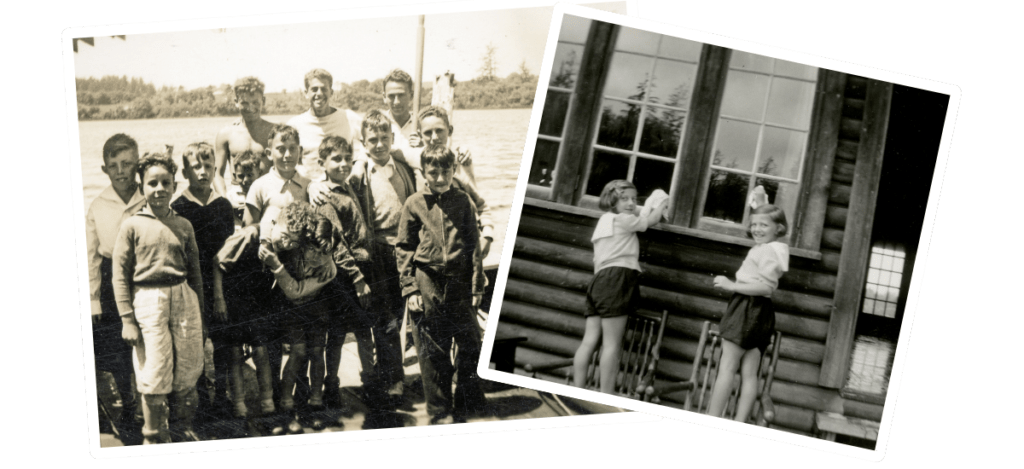
Welcome to the Legacy of BB Camp
Yet, our commitment to community extends far beyond our campgrounds. In times of crisis, BB Camp stands tall, offering direct support to families in need, such as those impacted by the devastating Echo Mountain Complex Fire in 2020.
As BB Camp embarks on its second century of operation, we invite you to join us on this extraordinary journey — a journey fueled by a rich history, boundless spirit, and unwavering dedication to creating meaningful experiences for generations to come.
10+ Decades of Fun
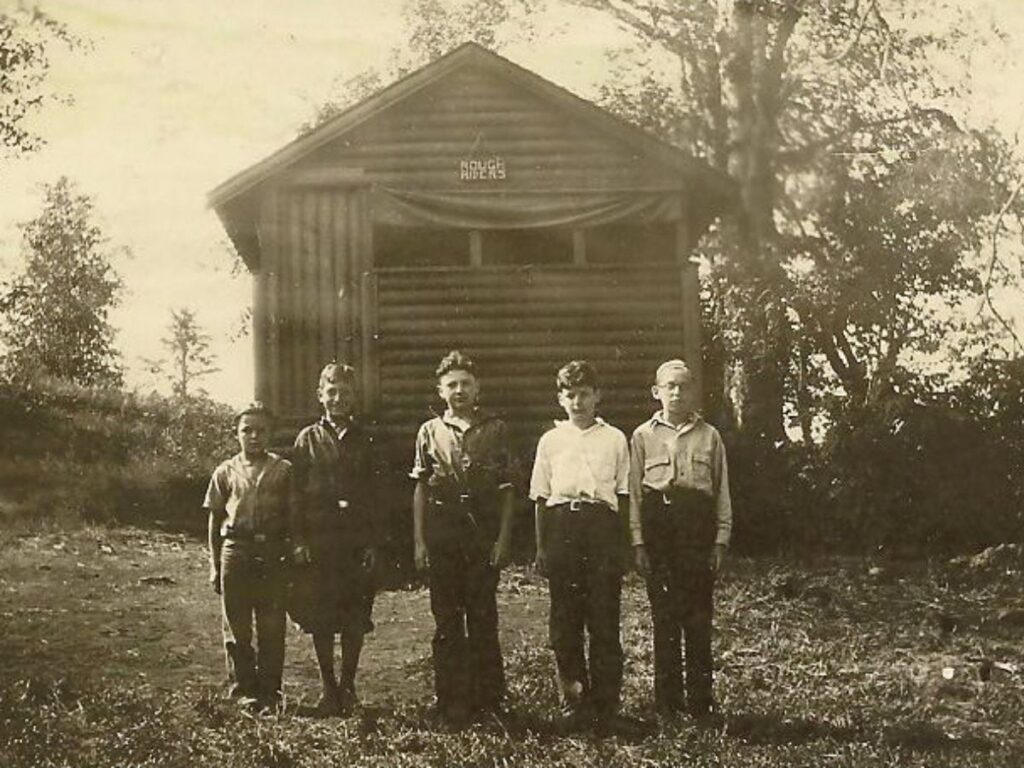
1920s
B’nai B’rith Camp opened in 1921, initially welcoming Jewish boys and girls in separate sessions at Camp Wallula, nestled next to Stevenson, Washington, before the camp moved to the shores of Neskowin a few years later. In 1928, Julius Meier (who in 1931 would become Oregon’s first Jewish governor), donated land only accessible by rowboat in Neotsu, on the shores of Devil’s Lake, which has remained the location of camp to this day.
A committee chaired by Alex Miller raised the funds to build 16 cabins, each supplied with army cots and canvas-covered windows, plus the mess hall (used until 2012), outdoor latrines, and a lake for washing. Amenities included a handball court, overnight camping adventures in nearby forests, swimming, and rowing.

1930s
In 1931 the Ramblers, a social and philanthropic men’s club in Portland, spearheaded the creation BB Men’s Camp to raise funds for improvements. In one of their first endeavors, they added four new buildings: the Hilltop, Lakeside, and Boat House cabins, and the Pioneer Lodge, situated across the street from camp. By the end of the decade, amenities included aquatic activities, arts and crafts, tennis, see-saw, horseback riding, archery, and the “crib,” an H-shaped swim deck built into the lake.
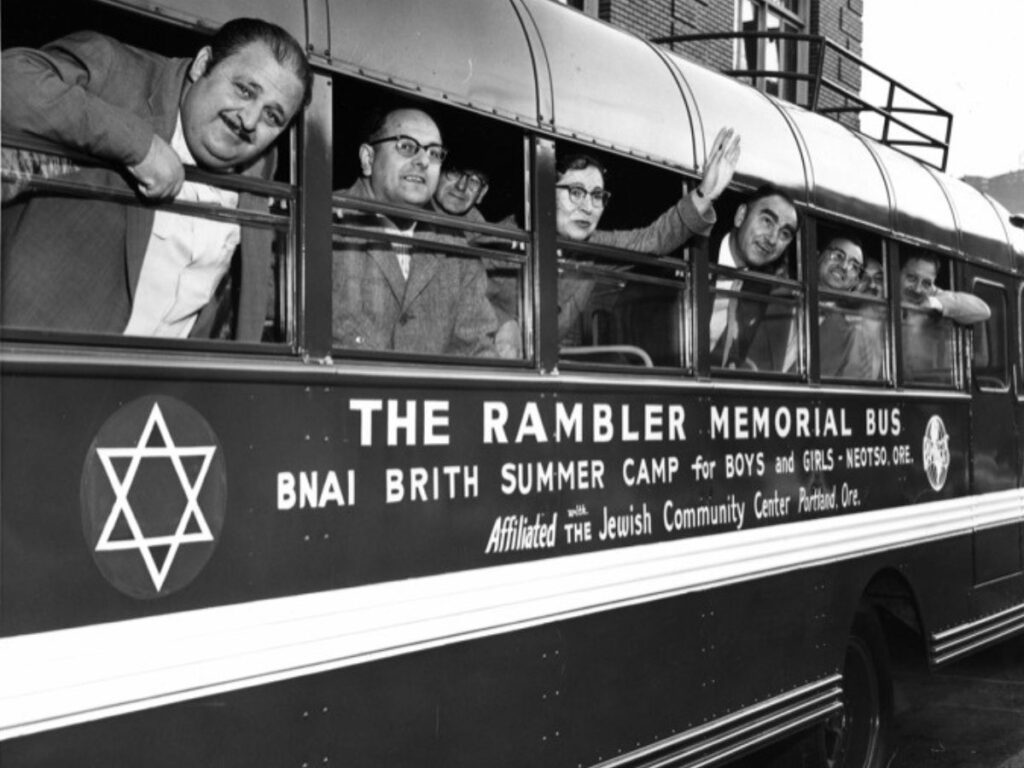
1940s
During the war years, campers brought their ration cards from home to make sure that there was enough available food. Amidst a world fraught with turmoil, the sanctuary of camp provided a welcome reprieve. Harry “Polly” Policar became the face of BB Camp where he served as the Camp Director for over 30 years from the late 1930s until 1970. Additionally, the Ramblers purchased a bus, facilitating the transportation of children to the campsite and further underscoring their commitment to fostering an accessible and inclusive camp environment.
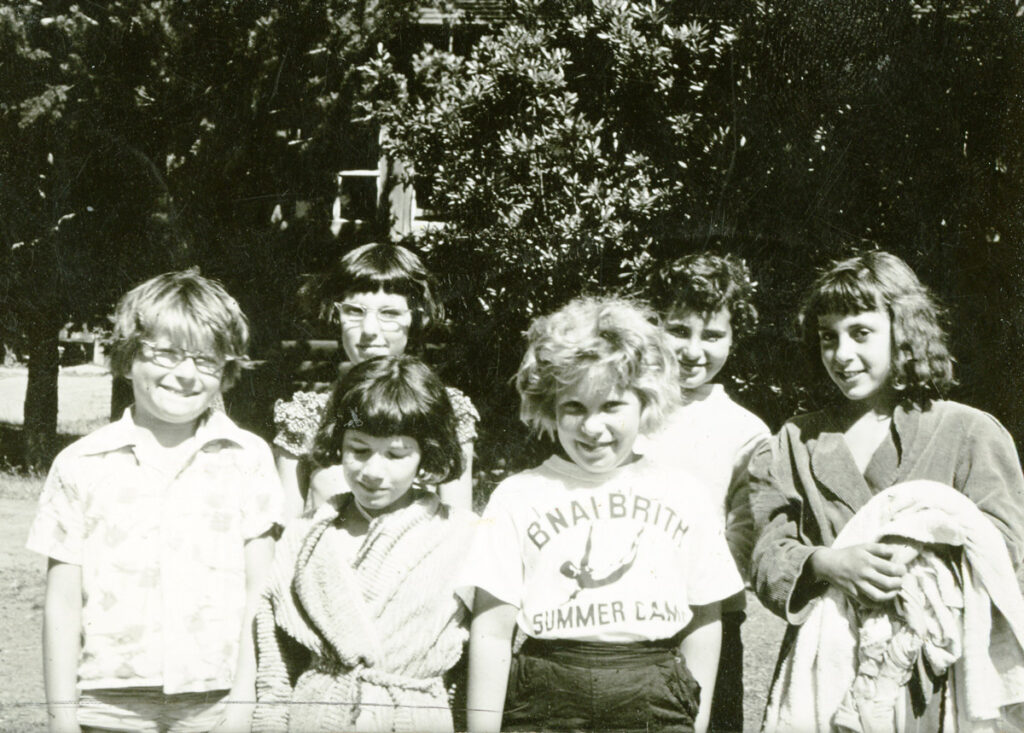
1950s
Camp grew to nearly 300 campers in the 1950s. Milt Margulis, President of Men’s Camp from 1946 to 1971, and Eugene “Gene” Nudelman, Sr., head of the Camp Committee, played pivotal roles in ensuring the camp’s continued prosperity. Their dedication was evident in their efforts to secure funding for essential maintenance, grounds upkeep, scholarships, and the development of new amenities, guaranteeing that camp remained vibrant and sustainable for years to come.
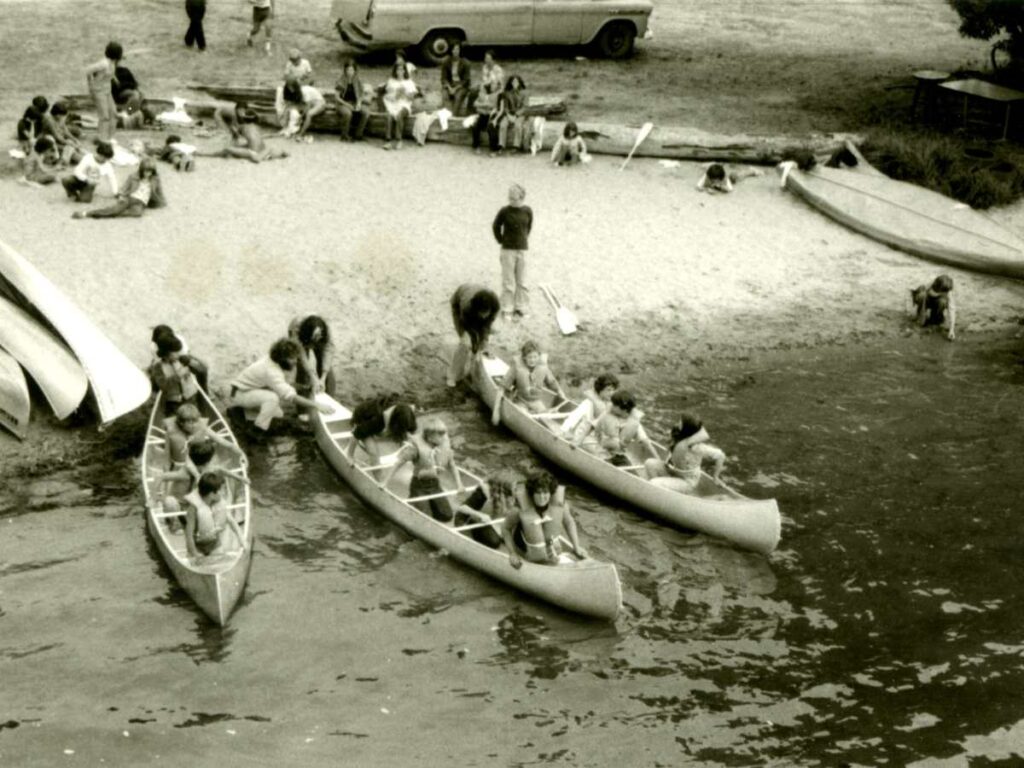
1960s
Water skiing, canoeing, arts and crafts, music, and the camp talent show gained significant popularity during this time. Several physical enhancements were made, including the construction of new cabins and a heated swimming pool. Notably, eight new North Cabins were built, and included the first windows in the cabins. To accommodate aging members, the Men’s Camp “Tattooers” raised funds for the addition of the new Tattooers Cabin, which featured a bathroom, a first for camp cabins.
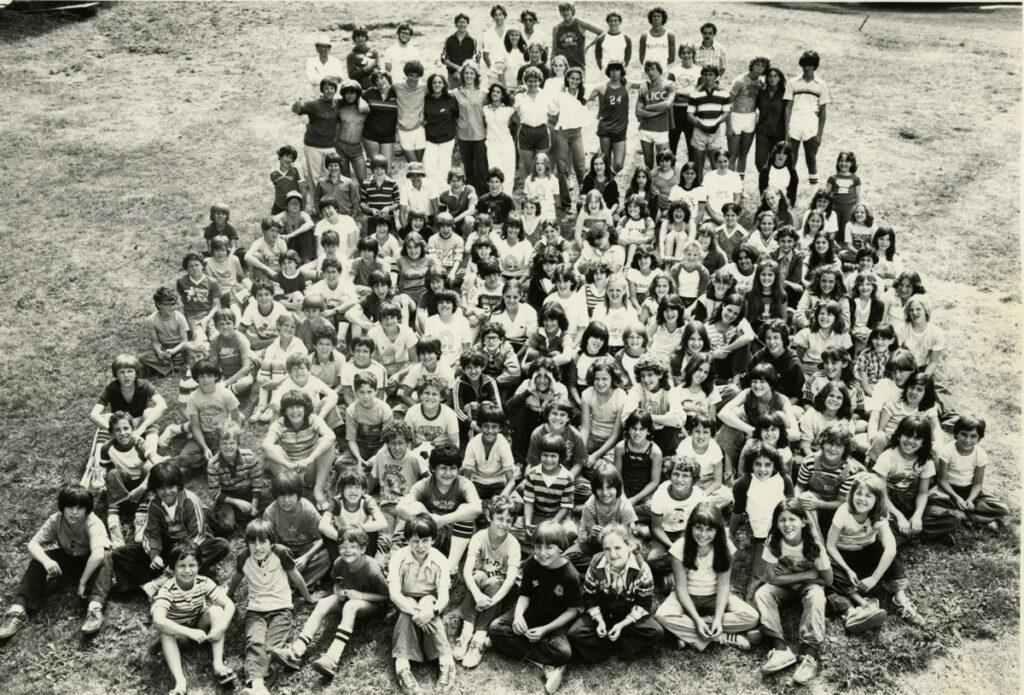
1970s
In 1971, the introduction of co-ed sessions prompted staff to organize dances in the mess hall, quickly becoming a beloved activity. Campers embraced traditions such as reciting prayers before and after meals and during Shabbat dinners, with flag-raising ceremonies conducted in both English and Hebrew. Camp expanded with the addition of six new buildings, while the Men’s Camp established a scholarship fund for campers. Milt Carl assumed leadership as the president of the BB Men’s Camp Association for 35 years, spearheading fundraising efforts. Under his guidance, the original South Cabins were replaced with new cabins featuring bathrooms for the girls’ side of camp.
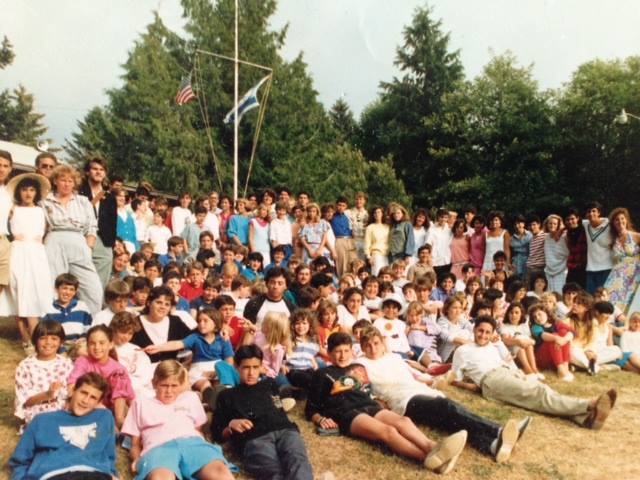
1980s
In 1982, BB Camp introduced a one-week Maccabee session, serving as a transition to the traditional three-week sessions. Under the leadership of Jeff Lann, camp director throughout much of the 1980s, there was a focus on integrating Jewish content such as Israeli dancing, Jewish songs, and increased Hebrew usage. Each morning, campers woke up to “Haksheivu, Haksheivu Na, Kol HaMachane” (Attention, Attention Please to the Entire Camp) over the loudspeakers. Lann also established a Counselor-In-Training program, which played a significant role in shaping the current Camp leadership. Additionally, beloved traditions such as the Shabbat Walk (or Hug Line), Friendship Circle, Staff and Cabin Ski nights, and numerous others were formalized during this period, evolving into enduring BB Camp traditions.
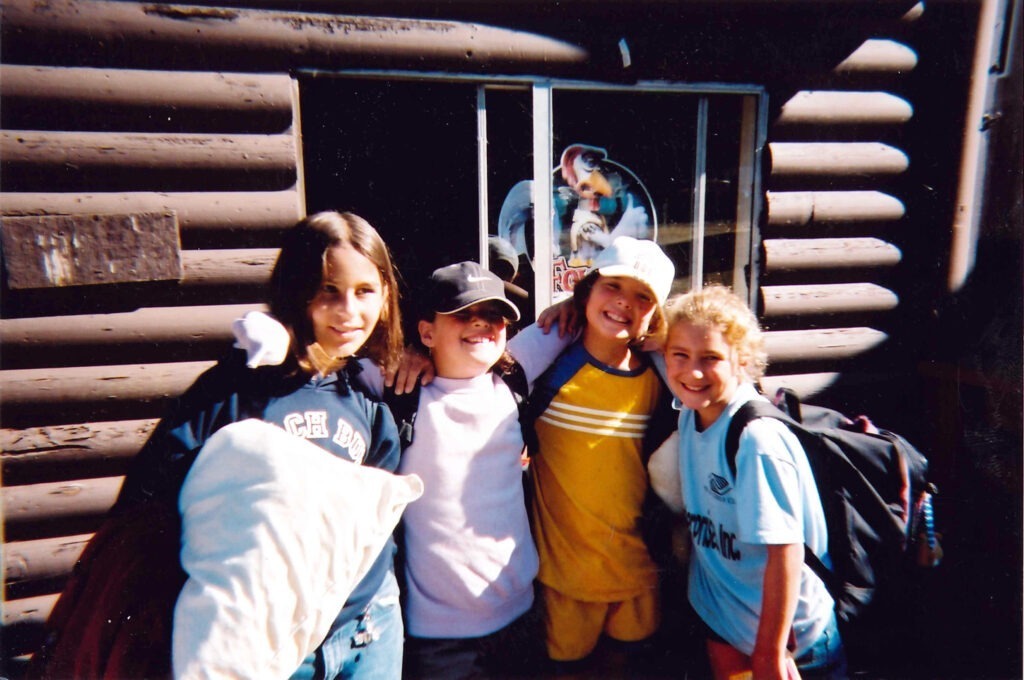
1990s
Camp alumni Doug Blauer and Jen Axman, who both grew up at BB Camp, served as camp directors during the 1990s. Doug introduced a fresh camp logo, featured on t-shirts provided to every camper. As the Jewish population in the region grew, so did camp attendance, reflecting the expanding community. This era also marked the welcome of third-generation campers, further cementing BB Camp’s place in the hearts of families across generations.
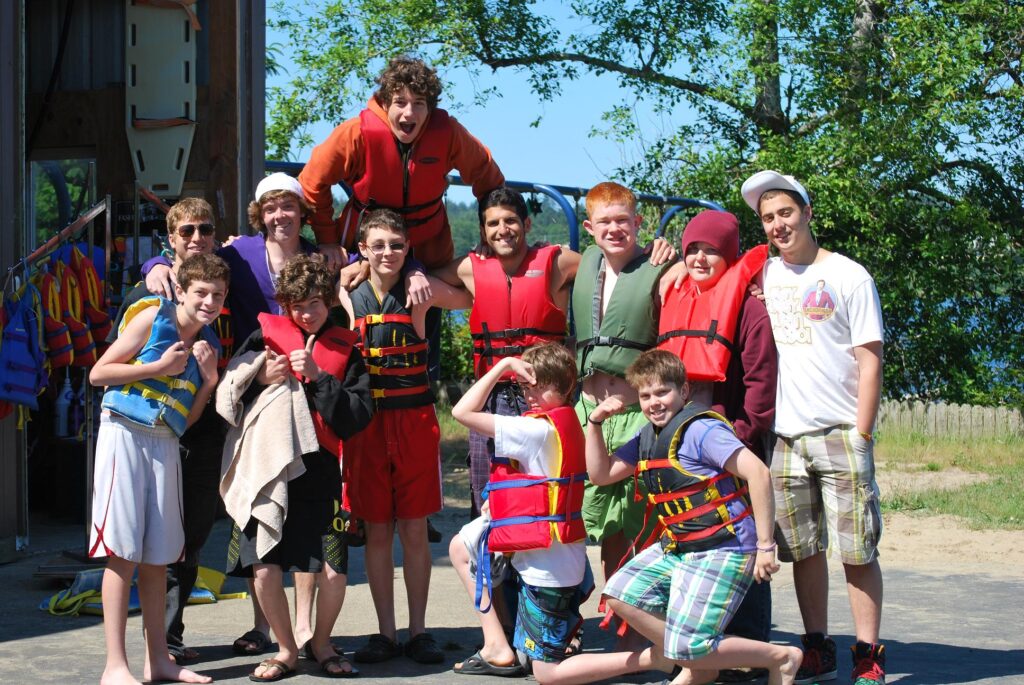
2000s
The millennium brought significant transformations to BB Camp, ushering in a new era of growth and inclusivity. Michelle Koplan, BB360’s current CEO, took the helm as camp director in 1999, spearheading initiatives to welcome all campers. Under her leadership, a fully kosher kitchen was introduced, and an inclusion program was established to support children with disabilities and other mental, emotional, and social health needs.
By 2005, BB Camp flourished with expanded facilities, including 15 cabins, an amphitheater, teva (nature) center, an arts and crafts studio, a volleyball court, tennis courts, classrooms, low ropes course, a heated pool, game room, “ga-ga” pit, library, gym, ball field, and large dining hall. In 2006, Day Camp was launched, providing Lincoln County children with nutritious meals and activities that built self-confidence and social skills. In 2009, Men’s Camp acquired the camp property from the Mittleman Jewish Community Center, marking a significant milestone as BB Camp became an independent, community-based Jewish camp.
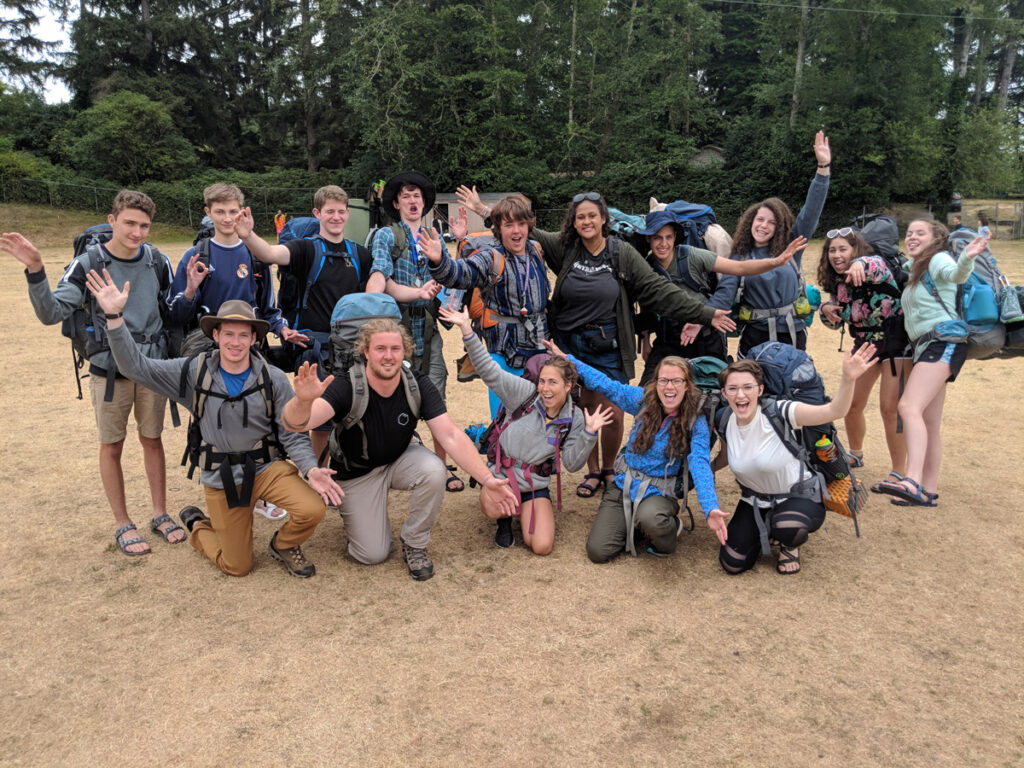
2010s
BB Camp embarked on an ambitious journey with a 10-year Master Plan aimed at completely rebuilding the camp for its 100th anniversary, culminating in the monumental $15 Million Second Century Campaign. As part of this initiative, new specialty camps were introduced, including surfing, paddleboarding, wakeboarding, and overnight rafting trips, as well as Outdoor Jewish Adventure: Pacific Northwest, offering wilderness camping.
The expansion of camp activities saw the addition of a zipline over the ballfield, a climbing wall, and a Learning Garden on adjacent property. BB Camp emerged as a national leader in inclusivity, implementing programs to welcome campers of all abilities. With grant funding, a year-round inclusion coordinator was appointed to ensure the success of every camper. Furthermore, BB Camp expanded its offerings to year-round programs, managing BBYO and PJ Library programs, expanding Family and Vacation Day camps, and introducing the Last Day of Camp Young Adult weekend.
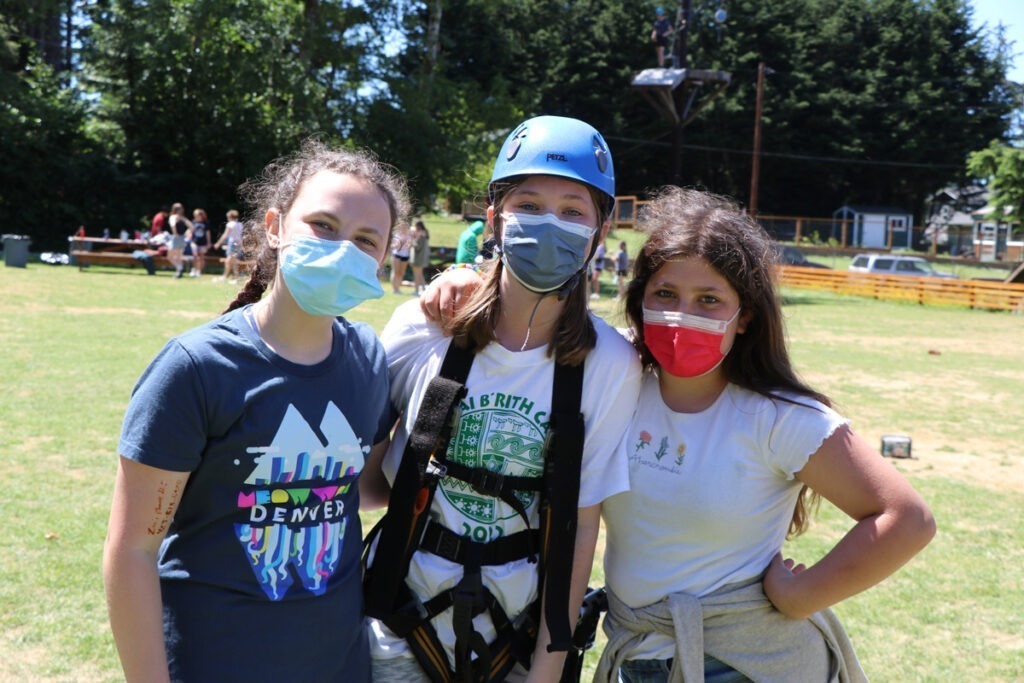
2020s
In the summer of 2020, the COVID-19 pandemic forced camp to close for the first time ever. Despite this, Day camps in Portland and Lincoln City continued to operate, and BB Camp extended support to the community by providing meals to Lincoln County school children during the school closures and rallying assistance during the Echo Mountain Complex Fire threat. A second kitchen was constructed to ensure the provision of meals to families and children in need, with over 345,000 meals served by June 2020, and the program continues to run today.
As camp reopened in 2021, it set its sights on a second century of safe and joyful experiences for campers of all ages. Building projects, including the Second Century Pavilion and a new performing arts building, were initiated to enhance the camp’s offerings. Furthermore, plans were set in motion to develop 54 acres of land in Rockaway Beach for a campground, trail system, and lake access, expanding the camp’s reach and amenities. In 2021, the introduction of another specialty camp, Outdoor Jewish Adventure: Israel, marked a significant milestone. In 2024, BB Camp underwent a rebrand to unify its various camps, events, and programs under one Jewish umbrella over the Northwest, and BB360 was born.





